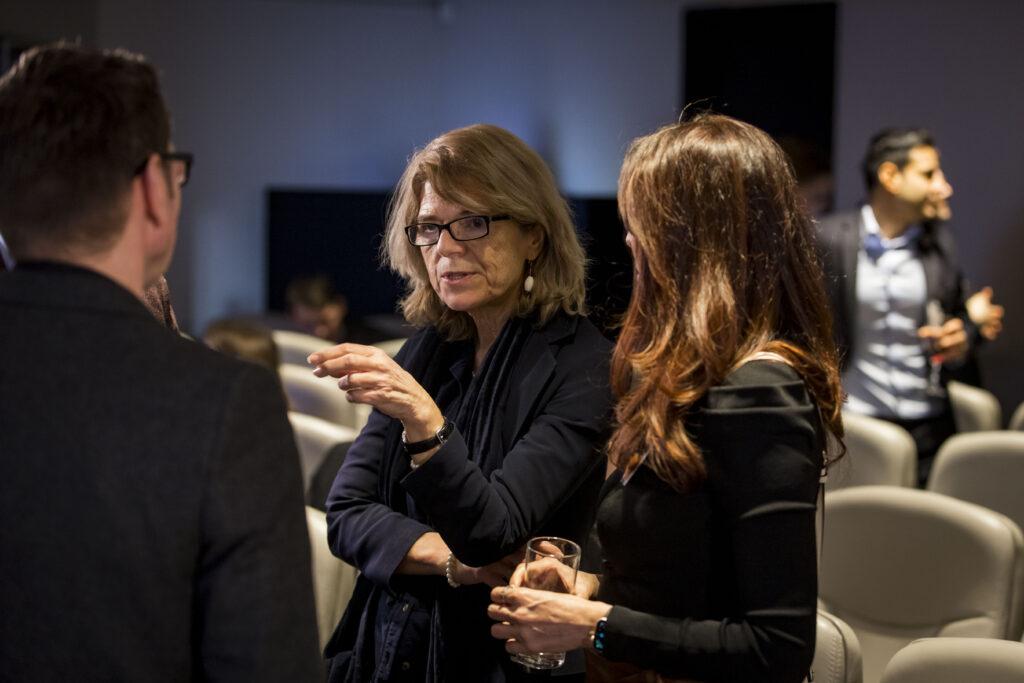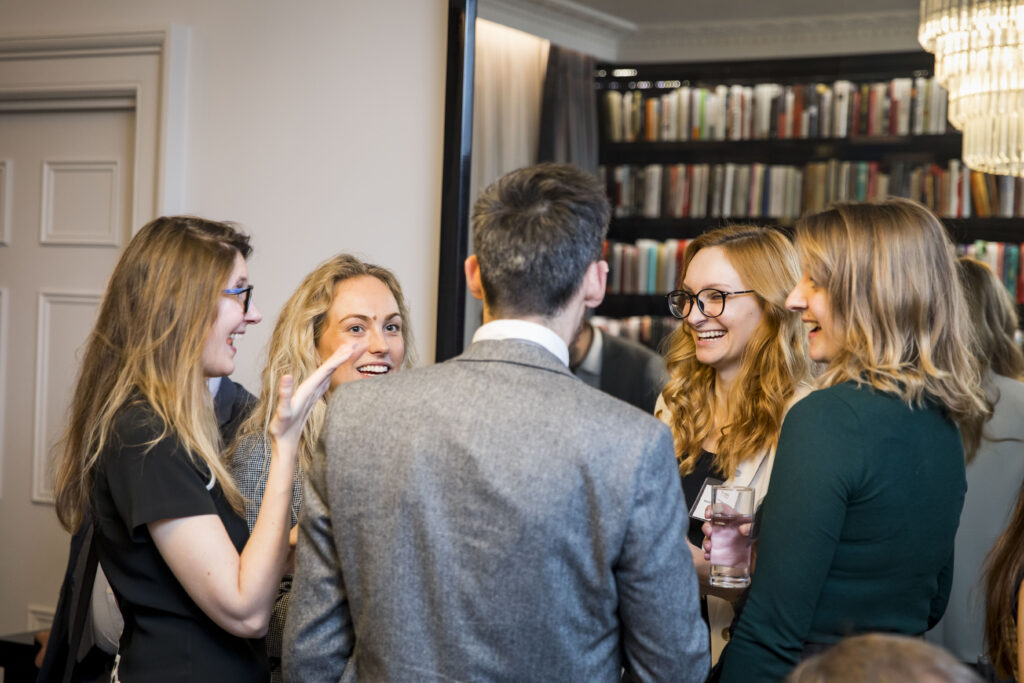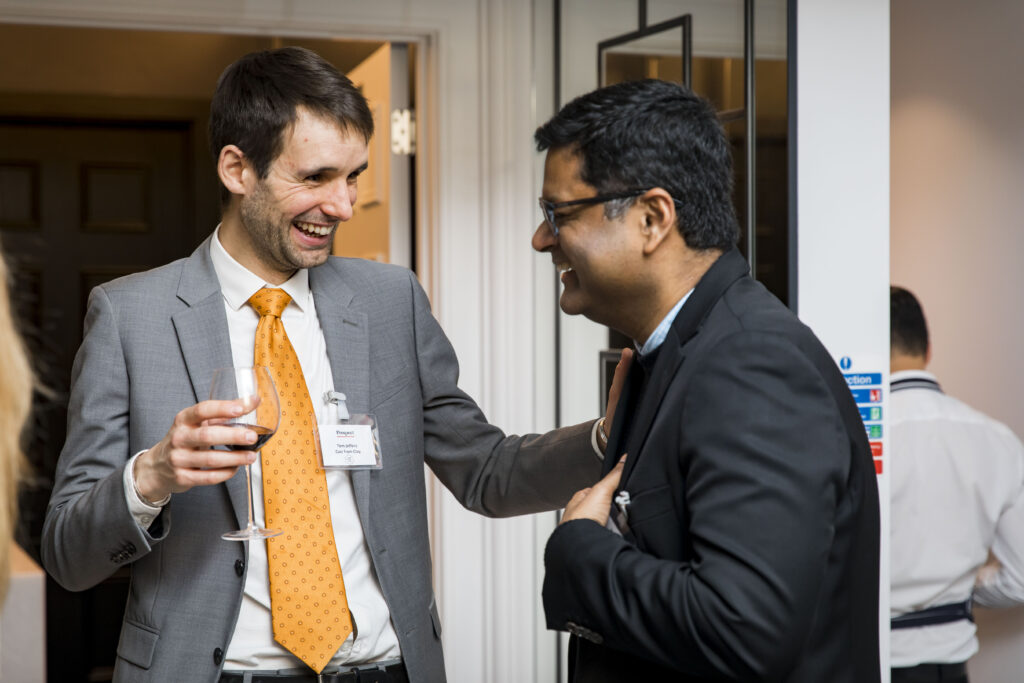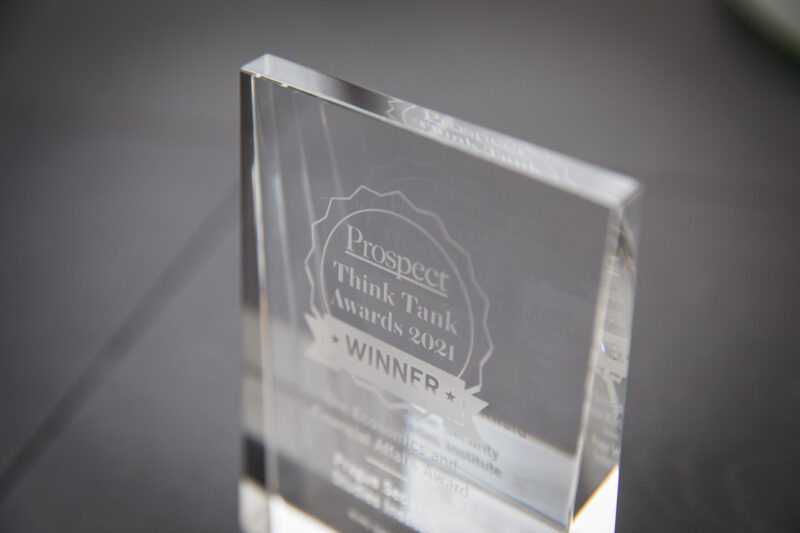We ask this question whenever we meet a think tank team for the first time. The aim isn’t to be provocative. It’s to raise our sights beyond the day-to-day march of project timelines and research frameworks, pipelines and proposals, to remind everyone of the overall purpose of the work: changing society for the better.
The answers run along the same lines. If think tanks disappeared we’d lose long-term, independent thinking, rigour and expertise. Policy would be less informed and less effective. Events that should have been predicted would hit us by surprise.
But what proof do we have of the impact of think tanks? No counterfactual, that’s for sure. Is there another way to keep score of the value think tanks are adding?
Enter Prospect’s Think Tank Awards, which we sponsored this year. These annual awards test and celebrate the quality and value of think tanks’ work. They set a standard for others to aim for, help share ideas, and restate the case for the sometimes quiet but often diligent work of the world’s policy researchers.
Why do the Think Tank Awards matter?
These awards are important for two reasons.
First, quality. It’s important to keep recognising the need for the work that think tanks do, and making sure the bar stays high.
As our own inquiry has shown, much of the public doesn’t really understand what think tanks are for. And when they do, they have low trust in these organisations. At Cast From Clay, we believe that has to change, and key to that is improving how visible, engaging and trustworthy think tanks are.
As one of the award judges, Vicky Pryce – Chief Economic Adviser at the Centre for Economics and Business Research and former UK government advisor – says: “A lot of think tanks’ work is very important, but it’s hidden. It is vitally important that they are fully contributing to the evidence gathering that is sorely needed about aspects of the economy or politics or social issues so that policymakers take note. How can we promote the type of research that is done, and how it can have the reach that it should?”

The second reason is ambition. It’s important to celebrate the people and organisations that are experimenting with what think tanks could do. Like finding novel ways to approach research, collaborating and convening more radically and meaningfully, or reaching new and important audiences.
These awards help to celebrate and share information about those who are pushing boundaries, inspiring others to follow their lead.
What makes a winning think tank?
Researching and evaluating professional researchers and evaluators? It’s an unenviable task for the panel of judges. As I made my way to the awards I wondered: What if the audience rushes the stage demanding to see the methodology? I pictured them flipping tables and barricading the doors: “No one leaves until we’ve reviewed your pivot tables!”
It’s an unenviable task for the panel of judges. As I made my way to the awards I wondered: What if the audience rushes the stage demanding to see the methodology?
If you’re thinking; “Tsk, stereotypes. Think tanks are more than data-hungry fanatics,” then I’ve proved my point. At their best, think tanks are more than the Thick Of It’s Malcolm Tucker-ism of spending all day writing “on the one hand this and on the other hand that”.
The nominees and winners showed they can do rigorous analysis. But the judges were also looking for evidence that they can provide plausible policy prescriptions, demonstrate convening power, show political clout and effective media engagement.
The research themes the awards spotlight are highly topical, sometimes prescient, and geared to improving our society. Many of this year’s winners were recognised for grasping hold of vital issues of the day.
Like this year’s winners of the social change prize, The Sutton Trust. When Covid hit, they sought to understand what the impact would be on students from low-income backgrounds and communicated this to those who could mitigate the damage.
Or The Centre for Social Justice (CSJ), who just lost out to Sutton Trust. They were praised for their research into how gangs groom new recruits and how to combat child abuse. Policy Exchange won in two categories Advocacy, and Health, Science and Medicine, recognising their role in shaping UK government thinking on public health.
Meanwhile, Green Alliance and RUSI were awarded for shaping post-Brexit policy, in environment and security respectively. And in the Economics Category, Prague Security Studies Institute pipped the Peterson Institute (and its “Extraordinary Convening Power“) for their economic and financial threat programme.

It’s our belief that the work of think tanks – independent research, analysis and debate on vital public policy issues – is vital to democracy. So we were pleased to see the new category of Democracy and Law introduced to the awards. Ukrainian think tank DEJURE rightly won this category, as well as Think Tank of the Year, just weeks before the outbreak of war following the Russian invasion of Ukraine. These events only highlight how important their work is and will continue to be. At Cast From Clay, our Lviv-based colleagues Vitaliy, Volodymyr and Rostyk know this all too well – so this win was close to our hearts.
These winners exemplify the best of think tanks as we know they can be: rigorous, expert, alive to important issues, willing to translate their analysis to policy recommendations. They are qualities can’t be taken for granted, especially not today. Celebrating them helps us keep the standard high and restate the case for doing so.
“What would be lost if think tanks disappeared tomorrow?” Quite a bit, turns out.
But what about what think tanks could be?
A look at the Ones To Watch category shows how this foundation can be built upon into more participatory approaches. Like this year’s winners, the Bevan Foundation, who describe themselves more as “a facilitator and amplifier” in shaping public policy in Wales after devolution. Or runners up, Centre for Progressive Policy, whose Inclusive Growth Network illustrates a “grassroots links to local government and focus on people and places”. They’re looking to get beyond an often insular central policy perspective and out to those dealing with the sharper end of decisions.
And winner of Think Tanker of the Year, Reuben Abraham, showed that think tanks can and sometimes should move fast. CEO of IDFC Institute (now called Artha Global), Reuben founded Covid Task force, which heavily influenced India’s Covid response and saved many lives.

We know think tanks have their flaws and challenges. Our own organisation wouldn’t exist if that weren’t the case. But it’s good to be reminded why it all matters.
“What would be lost if think tanks disappeared tomorrow?” Quite a bit, turns out.
A version of this piece was also published in Prospect Magazine.



